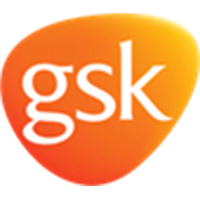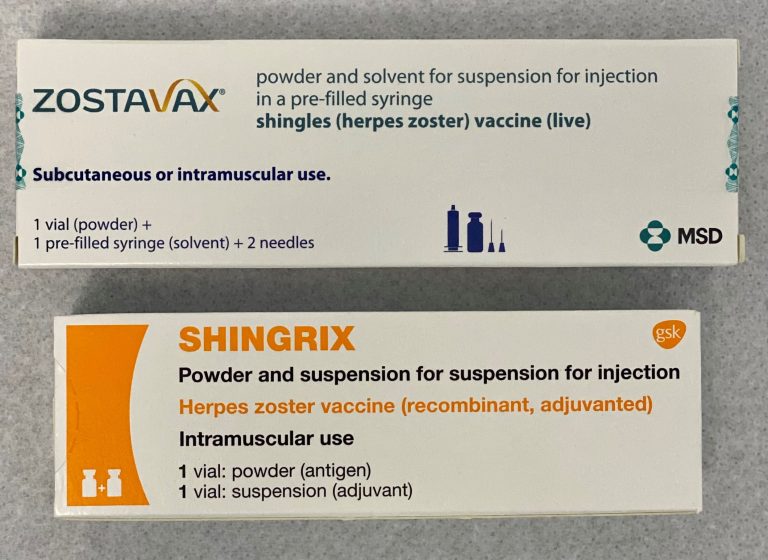GlaxoSmithKline plc (LON: GSK) has today announced results from PRIMA (ENGOT-OV26/GOG-3012), the Phase 3 randomised, double-blind, placebo-controlled study of Zejula (niraparib) as a maintenance therapy in women with first-line ovarian cancer following a response to platinum-based chemotherapy. Niraparib treatment resulted in a 38% reduction in the risk of disease progression or death in the overall population (PFS, HR 0.62; 95% CI, 0.50-0.75; p<0.001).
These results were driven by a clinically meaningful reduction in risk of progression in women with:
· BRCA mutation tumours (risk reduction of 60%, HR 0.40 (95% CI, 0.27-0.62) p<0.001).
· HR-deficient BRCA wild type tumours (risk reduction of 50%, HR 0.50 (95% CI, 0.30-0.83), p=0.006).
· HR-proficient tumours (risk reduction of 32%, HR 0.68 (95% CI, 0.49-0.94), p=0.020).
The PRIMA study enrolled patients with a response to their first-line treatment with platinum-based chemotherapy including those with high risk of disease progression, a population with high unmet need and previously under-represented in first-line ovarian cancer studies.
Dr. Hal Barron, Chief Scientific Officer and President R&D, GSK said:
“Ovarian cancer is the eighth most commonly occurring cancer in women worldwide and women with this devastating disease have a five-year survival rate of less than 50%. PRIMA is a landmark study as we believe these data have the potential to fundamentally change how women with ovarian cancer are treated.”
In an interim analysis of overall survival (OS), niraparib also demonstrated an encouraging trend toward improvement in OS relative to placebo. A pre-planned interim analysis of OS numerically favoured niraparib in the overall population (HR 0.70; 95% CI 0.44-1.11). In the HR-deficient subgroup, 91% of women on niraparib were alive at 24 months vs. 85% for placebo (HR=0.61; 95% CI, 0.27-1.40). These data are not yet mature, and the significance is not fully known. The OS interim analysis also showed 81% of women receiving niraparib in the HR-proficient subgroup were alive at 24 months vs. 59% of women receiving placebo (HR=0.51; 95% CI, 0.27-0.97).
Dr. Antonio Gonzalez, co-director, department of medical oncology, Clinica Universidad de Navarra, and Primary Investigator for PRIMA said:
“The PRIMA study demonstrated the importance of maintenance therapy and the benefit that niraparib provided to women with ovarian cancer. I believe that niraparib monotherapy after surgery and platinum-based chemotherapy could be an important new treatment option for patients.”
Niraparib is not currently approved in the first-line ovarian cancer maintenance setting. GSK will share these data with the relevant health authorities and is on track to file by the end of the year.
The safety profile demonstrated in PRIMA did not differ from the established safety profile. The most common grade 3 or higher adverse events with niraparib included anaemia (31%), thrombocytopenia (29%), and neutropenia (13%). Implementation of an individualised dosing regimen based on body weight and/or platelet count reduced the incidence of haematological treatment-emergent adverse events. No new safety signals were identified. Validated patient reported outcomes indicate quality of life was similar between the niraparib and placebo treatment arms.
Niraparib is marketed in the United States and Europe under the trade name Zejula®.
GlaxoSmithKline plc also announced today that GSK3359609, an inducible T cell co-stimulatory (ICOS) agonist antibody designed to selectively enhance T cell function, showed promising anti-tumour activity in combination with pembrolizumab in PD-1/L1 naive patients with head and neck squamous cell carcinoma (HNSCC). Findings from the INDUCE-1 study also suggested GSK3359609 has single agent activity in patients with PD-1/L1 experienced HNSCC.
The safety and tolerability profile of GSK3359609 was consistent with the results reported in the dose escalation phase of INDUCE-1. The data were presented at the European Society for Medical Oncology (ESMO) Congress 2019 in Barcelona, Spain.
Dr. Axel Hoos, Senior Vice President and Head Oncology R&D, said:
“Immunotherapies such as GSK3359609 are a critical part of our oncology pipeline and we are encouraged by the INDUCE-1 data demonstrating the potential of this agent to enhance anti-tumour activity beyond what PD-1 blockade alone has demonstrated. The clinical responses observed are encouraging and, based on precedent with CTLA-4 or PD-1, we aim to demonstrate the main effect of our ICOS agonist to be on improving survival for patients, which requires further study. Based on these results, we are initiating the INDUCE-3 registrational trial to investigate the potential survival benefit of GSK3359609 with pembrolizumab in first-line recurrent/metastatic HNSCC for patients who are PD-L1 positive.”
The data presented stem from the expansion phase of INDUCE-1, a first-in-human, open-label study investigating GSK3359609 as a monotherapy and in combination with other regimens. Patients in the study had recurrent or metastatic HNSCC and had received up to five prior lines of therapy in the advanced setting. Patients in the monotherapy cohort had previously been treated with PD-1/L1 therapy and received 1 mg/kg GSK3359609. Patients in the combination cohort were naive to PD-1/L1 therapy and received 0.3 mg/kg GSK3359609 and 200 mg pembrolizumab. Patients in both cohorts were evaluated until disease progression or unacceptable toxicity, for up to two years.
In the 34 evaluable patients who received the combination therapy, the overall response rate was 24% (n=8; 95% CI: 11, 58.7). Responses in the combination cohort were durable with all responding patients maintaining benefit for 6 months or longer (median not reached; 95% CI: 4.2 months, NR); the median progression-free survival (PFS) was 5.6 months (95% CI: 2.4, 7.4). Of the 21 patients with known PD-L1 expression data, the majority of responders and patients with stable disease had PD-L1 score below 20. Of the 16 evaluable patients who received monotherapy, the overall response rate was 6% (n=1; 95% CI: 0.2, 30.2).
The INDUCE-1 study was conducted pursuant to an agreement between GSK and Merck & Co, Inc., Kenilworth, N.J., U.S.A. (known as MSD outside the U.S. and Canada). GSK is continuing its relationship with MSD to support the INDUCE-3 phase II/III combination trial to be initiated by the end of 2019.
HNSCC is a cancer that develops from squamous cells in the mucous membranes of the mouth, nose and throat, and is the seventh most common cancer worldwide with approximately 600,000 new cases diagnosed each year.[i] Although HNSCC occurs more frequently in men in their 50s or 60s, the incidence is increasing among younger individuals.[ii] HNSCC tumours are highly immunogenic and have an elevated expression of immune checkpoint modulators, including ICOS and PD-1.[iii]










































